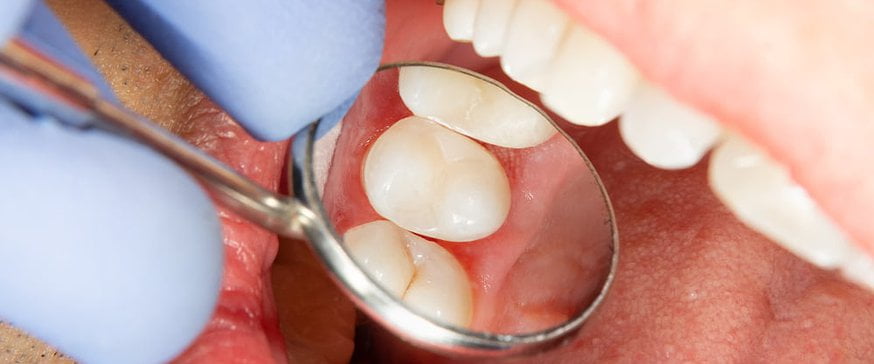
Protecting Your Smile with Dental Sealants: A Clear-Cut Guide
Everyday brushing and flossing can only do so much, especially on teeth with deep grooves and fissures. That’s where dental sealants come in. In a nutshell, they’re thin coatings applied to the chewing surfaces of your back teeth to help keep decay-causing bacteria out. Below, we’ll get straight to the point about what dental sealants are, who needs them, and how they can benefit both kids and adults.
What Are Dental Sealants?
Dental sealants — also called a dental tooth sealant — are protective layers placed over the top of your molars or premolars. Usually a resin that adheres fast to tooth enamel, the dental sealant material forms a shield that can last years. These teeth are good targets for cavities as their inherent pits and grooves help them to more readily retain food waste. The sealer smooths out the deep cracks to prevent the settling of plaque.
- Dental sealant ingredients: Mostly safe, resin-based substances.
- Dental sealant safety: Applied and cured under a special light, so there’s minimal risk of toxicity or harm.
Are Dental Sealants Really Necessary?
If you’re wondering, “Are dental sealants necessary?” consider how common cavities are in those hard-to-reach back teeth. Applying a dental tooth sealant is a simple, painless action many patients find to save time, money, and dental suffering down-road. Although they are not required, sealants can be a game-changer if your child has cavities or if you have yourself.
- Dental sealants for kids: Highly recommended when permanent molars come in around ages 6–12.
- Dental sealants for adults: An option if you still have deep pits or if you tend to form cavities easily.
Are Dental Sealants Safe — or Toxic?
A frequent concern about sealants dental is whether they’re safe or if they contain harmful chemicals. At MapleDentalHealth, we use dental sealant ingredients that meet strict health and safety standards. Here’s what you need to know:
- Are dental sealants toxic? Research shows they pose no significant health risk when properly applied.
- Dental sealant safety: It’s important to choose a reputable dental practice that follows the best protocols.
If you are not sure, discuss the particular brand or type of sealant your dentist uses. A confident grin depends mostly on effective communication!
Do Insurance Plans Cover Sealants?
Many people search for “are dental sealants covered by insurance?”—and the good news is that many plans do cover them, especially for younger patients. Policies vary, thus ask MapleDentalHealth to verify on your behalf or give your insurance company a quick call. For the insurer as well as you, preventative procedures usually convert into long-term savings.
Are Dental Sealants Worth It?
Short answer: crowns, or root canals down the road, will help you avoid cavities and possible fillings. For those with cavity-prone teeth, dental sealants are a no-brainer as they provide a reasonably cheap layer of protection. Consider them as your molars' equivalent of a raincoat: although it's not required, it surely keeps you dry when the weather — or decay risk — turns severe.
Can Dental Sealants Be Removed or Replaced?
Reapplying a sealant is a breeze if it starts to show wear. Should you ever need it taken off, your dentist can securely remove it without compromising the tooth structure — though it is seldom required. Many people use the same sealants for several years before requiring any touch-ups.
Where Can I Find Dental Sealants Near Me?
If you’ve been searching online for “dental sealants near me,” you’re in the right place. At MapleDentalHealth, we believe in prevention first. Our trained team ensures each dental tooth sealant is placed accurately and comfortably. During your visit, we’ll:
- Thoroughly clean your tooth.
- Gently prepare the surface for optimal bonding.
- Apply the dental sealant material.
- Harden the sealant using a special curing light.
The process is quick, painless, and suitable for both dental sealants for kids and dental sealants for adults.
Final Takeaways
Dental sealants are useful, tried-and-true methods for helping to avoid cavities; they are not fads. If you're wondering whether dental sealants are appropriate for your child or yourself, keep in mind they provide:
- a robust defence against tooth decay.
- less chance of future need for further major dental treatment.
- peace of mind for everyone wishing a longer-lasting, better grin.
Ready to take the next step or simply want more information about sealants dental? Feel free to contact MapleDentalHealth. Our friendly staff can assess your specific needs, confirm if dental sealants are necessary, and help you decide if they’re truly worth it for your unique situation.
In short: No more guesswork, no more worries about “are dental sealants safe” or “are dental sealants toxic?” — our team ensures you’re in good hands every step of the way. Book an appointment today to protect your teeth for tomorrow!
Have Questions?
Contact MapleDentalHealth to learn more about dental sealant safety, whether dental sealants can be removed, and how we help patients achieve a healthy, confident smile. We’re here to guide you every step of the way!




















